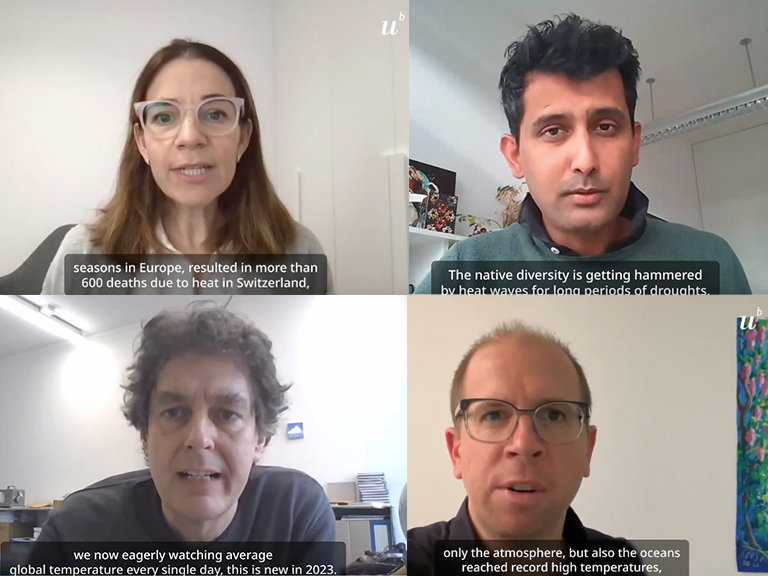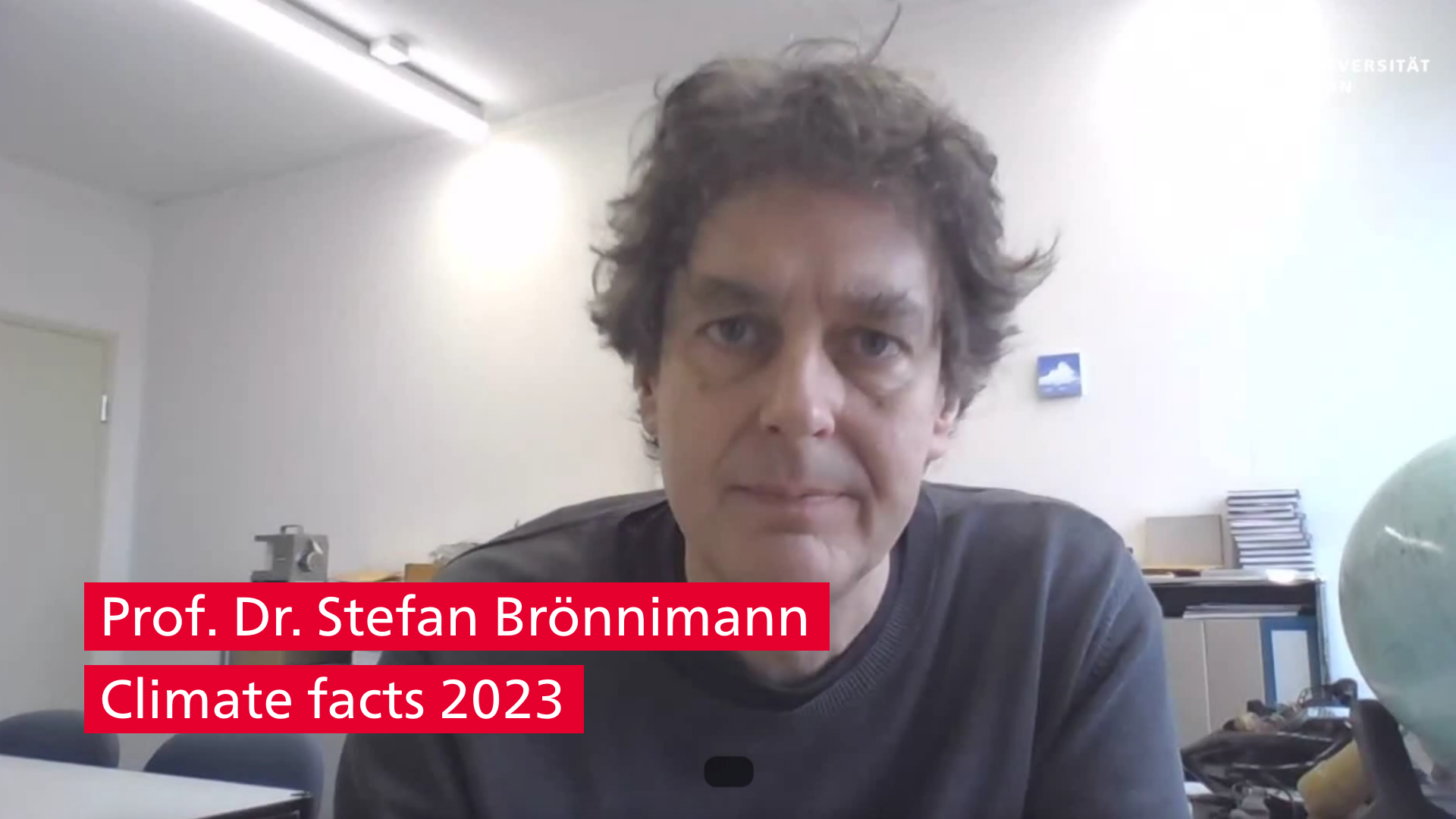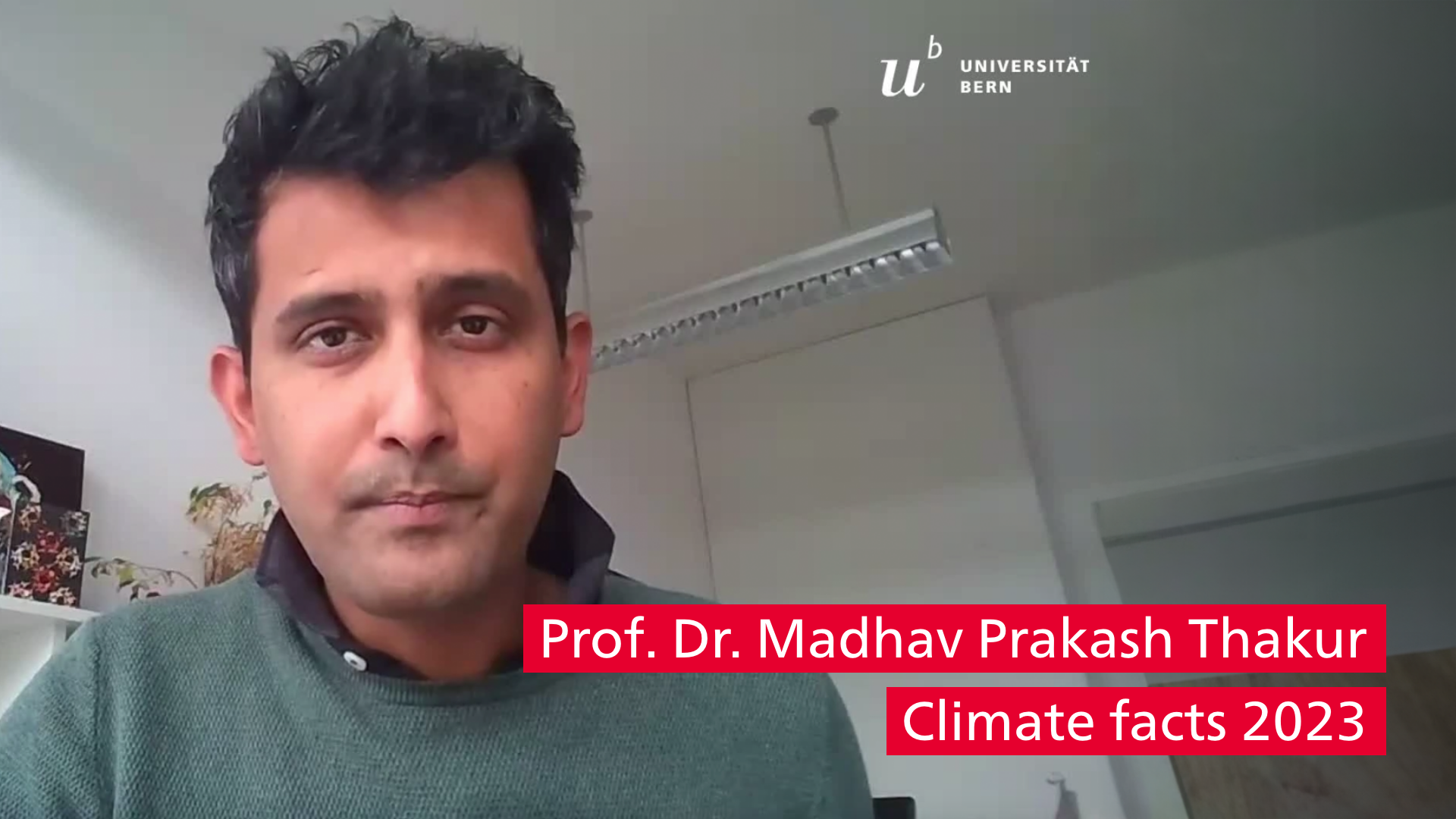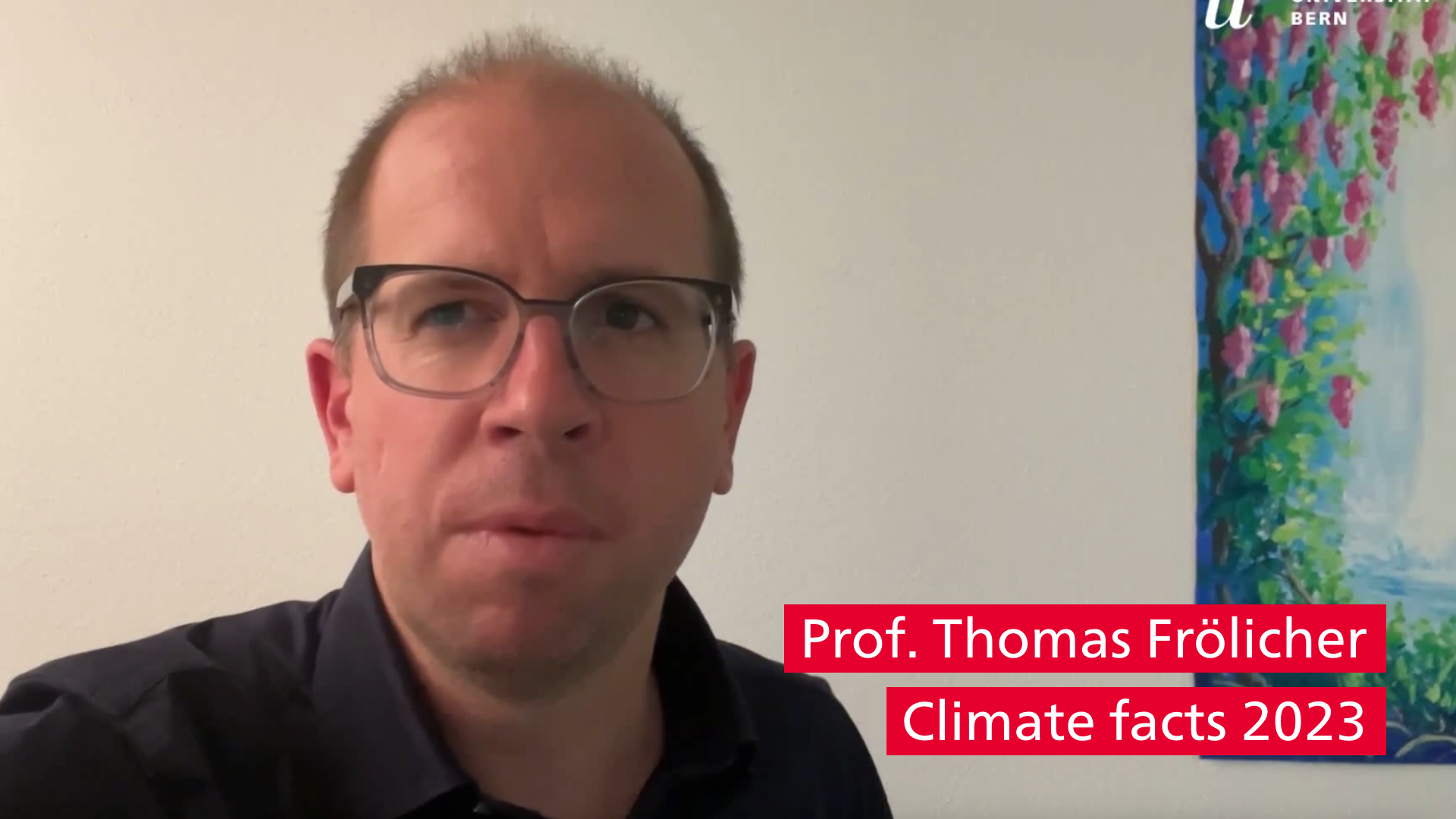Climate
These are the climate facts for 2023
At the COP 28 world climate conference in Dubai, the global community is currently trying to limit human-made global warming. Where is climate change already making itself felt today? Four researchers from the University of Bern present climate facts 2023 in video statements.

Around 70,000 participants assemble in Dubai from November 30 to December 12, 2023 for the COP 28 World Climate Conference. According to the Paris Climate Agreement of 2015, the increase in the global average temperature is to be limited to "well below two degrees Celsius above pre-industrial levels". The agreement sets a target of no more than 1.5 degrees Celsius warming in order to reduce the risks and effects of climate change.
Where are we today, at the end of 2023? Where is climate change already making itself felt? Four researchers from the Oeschger Center for Climate Change Research at the University of Bern (OCCR) get to the heart of current developments in their field in short video statements.
Stefan Brönnimann, climatologist: "Almost always above 1.5 degree mark since July"
"Since July, global temperature has almost always been above the 1.5-degree mark," says climatologist Stefan Brönnimann from the Institute of Geography: "The last few days in November it has even exceeded the 2-degree mark for the first time." Until now, we have viewed climate change as something long-term: "The fact that we are now eagerly watching the global mean temperature every day, this is new in 2023," says Brönnimann.
Ana Vicedo, climate epidemiologist: "Serious effects on health"
"Climate change is severely affecting the health of the population already today," says Ana Maria Vicedo Cabrera from the Institute of Social and Preventive Medicine (ISPM). We don't need to go far to recognize this: According to a study led by the University of Bern, for example, there were more than 600 heat-related deaths in Switzerland during the heatwave summer of 2022. "Around 60 percent of these can be attributed to human-made global warming," says Vicedo.
Subscribe to the uniAKTUELL newsletter

Discover stories about the research at the University of Bern and the people behind it.
Maddy Thakur, ecologist: "Biodiversity is getting hammered"
"Native biodiversity is getting hammered by heatwaves for long periods of droughts," says Madhav Thakur from the Institute of Plant Sciences: "And this is often happening through promotion of invasive species by climate change."
Thomas Frölicher, ocean researcher: "Oceans reach record temperatures"
"The year 2023 is expected to be the warmest year since records began," says ocean researcher Thomas Frölicher from the Institute of Physics: "Not only the atmosphere, but also the oceans reached record high temperatures."



